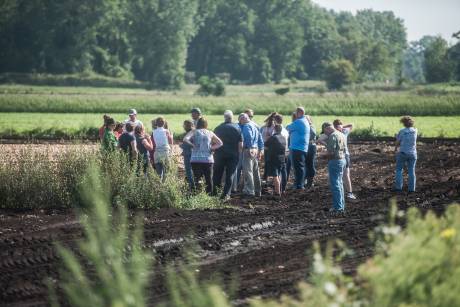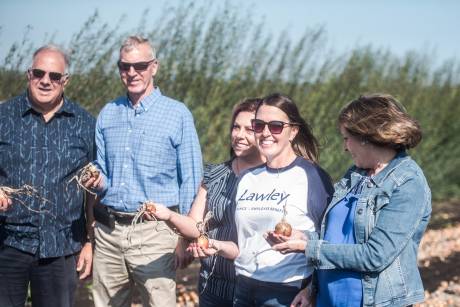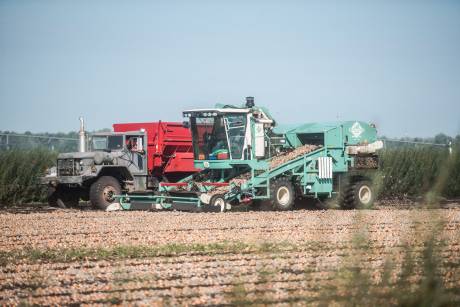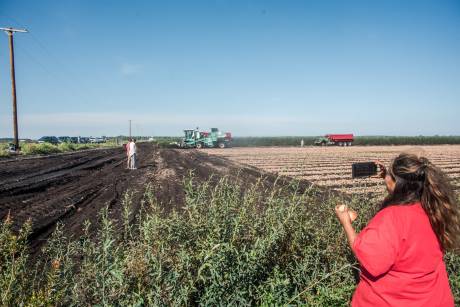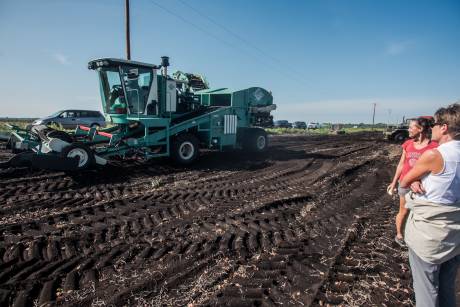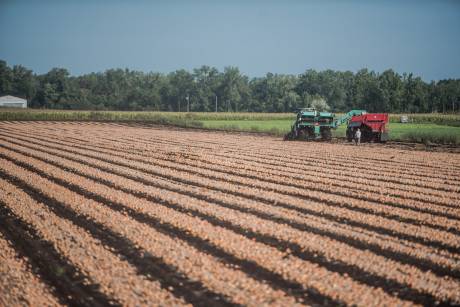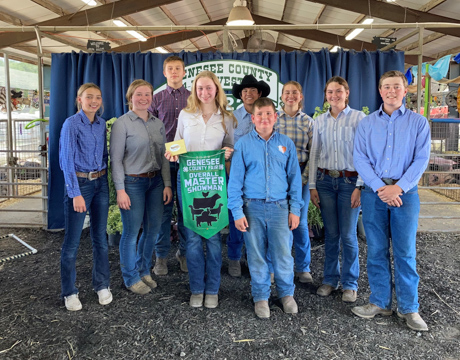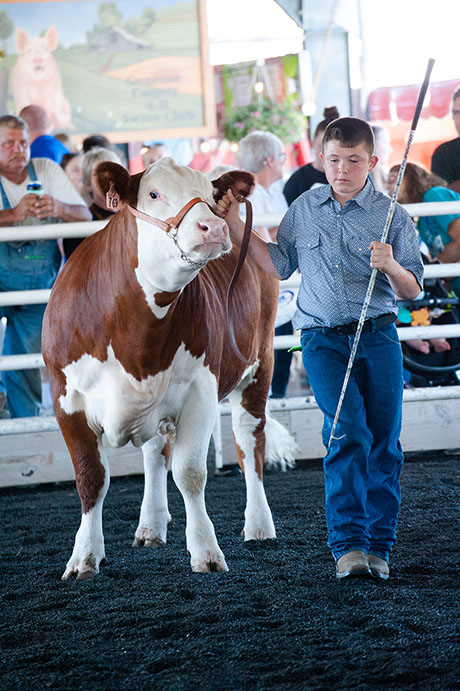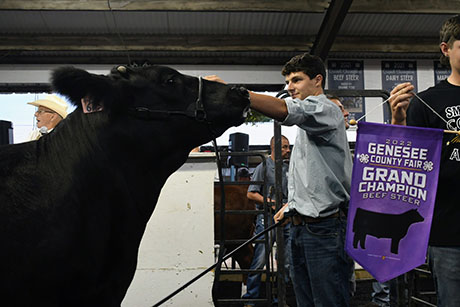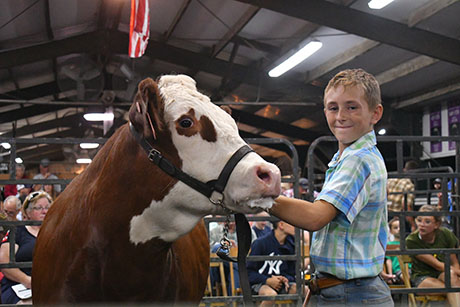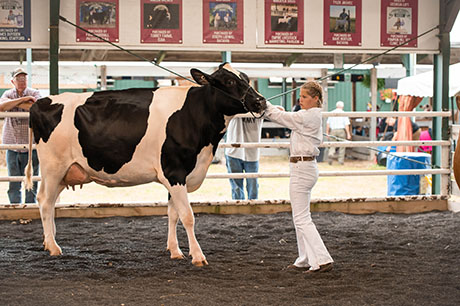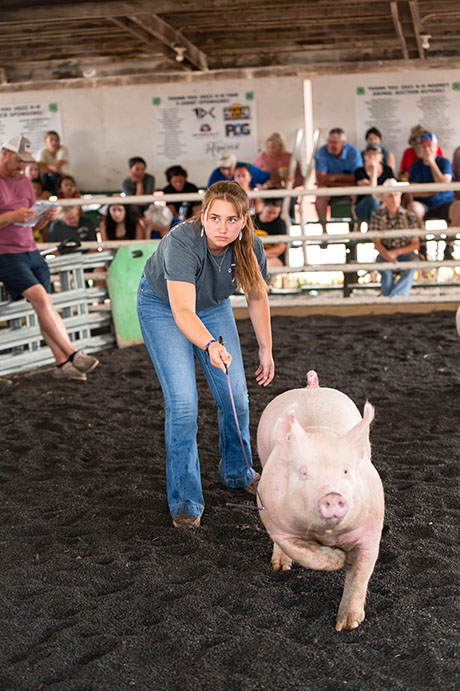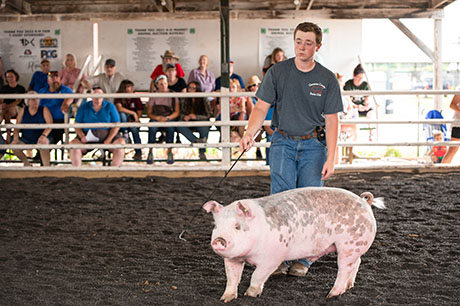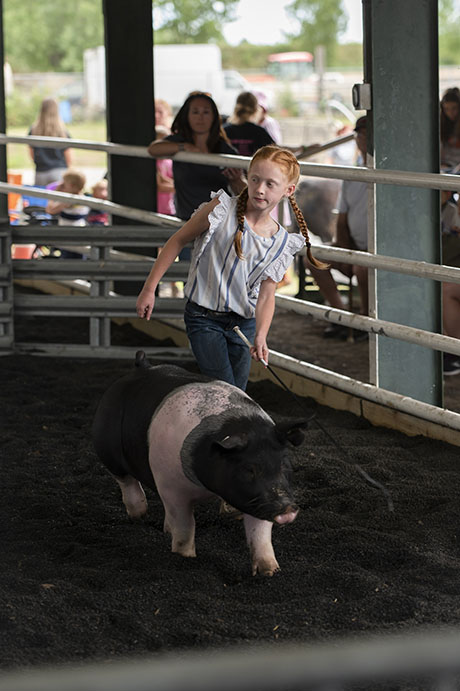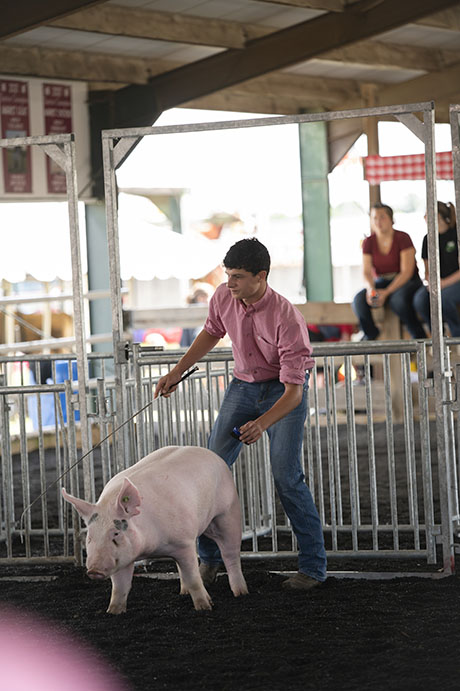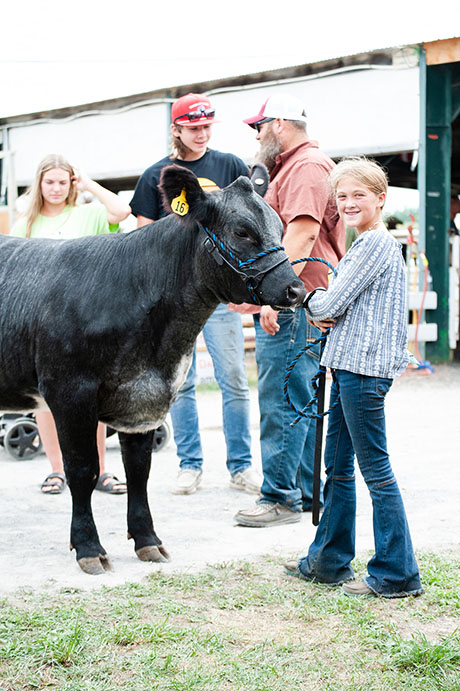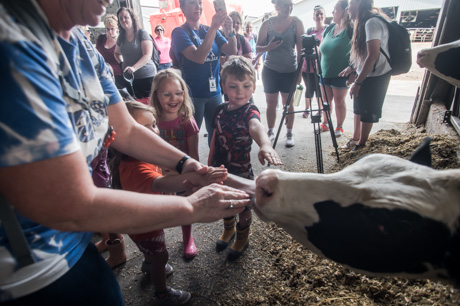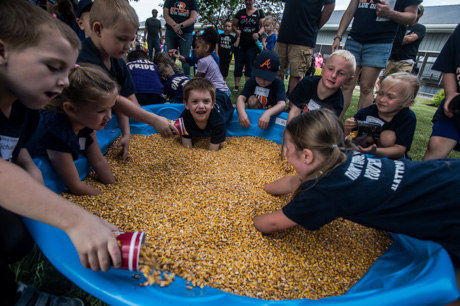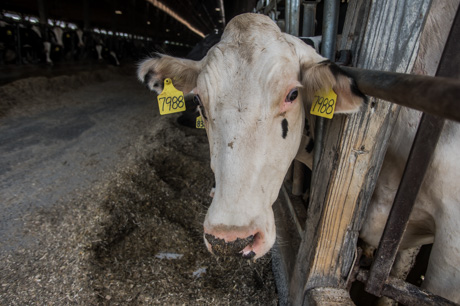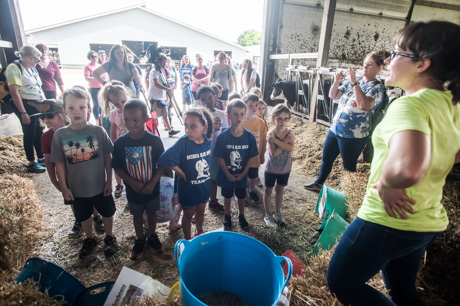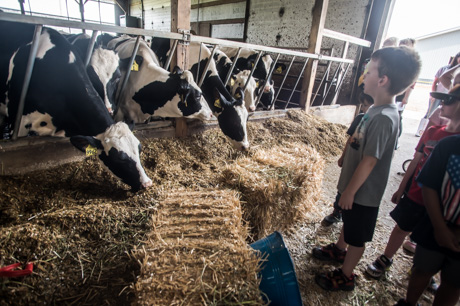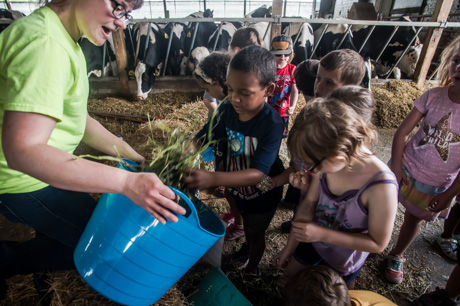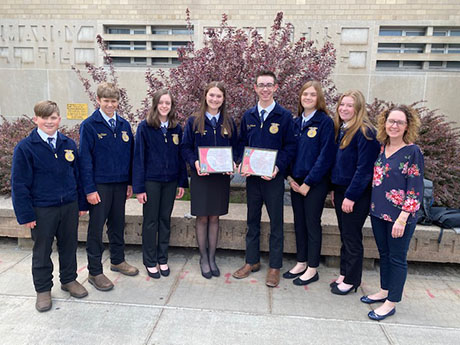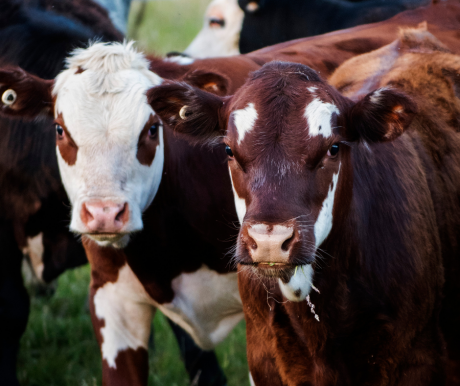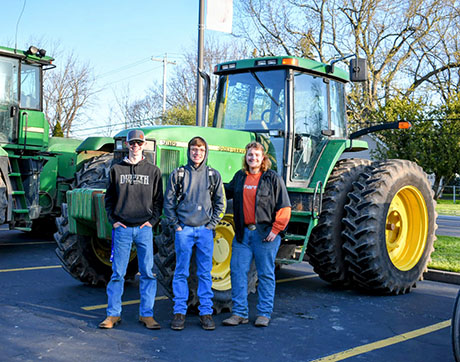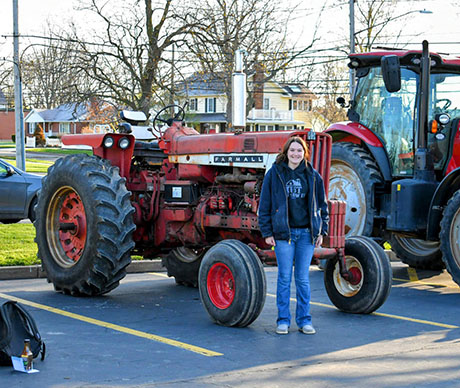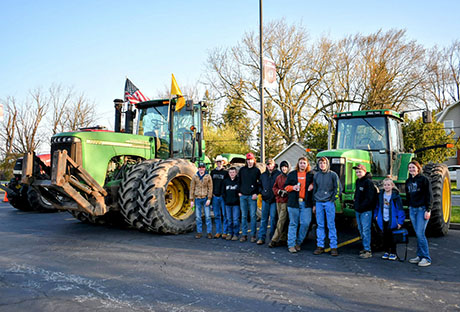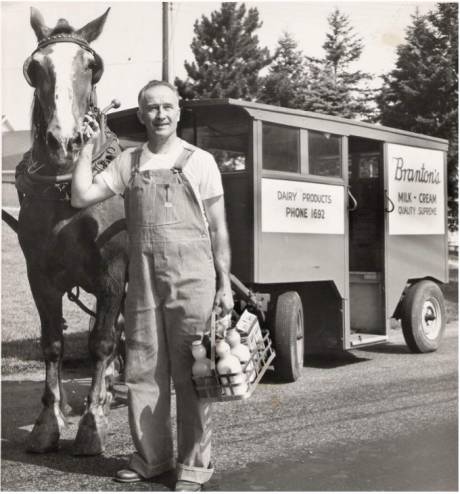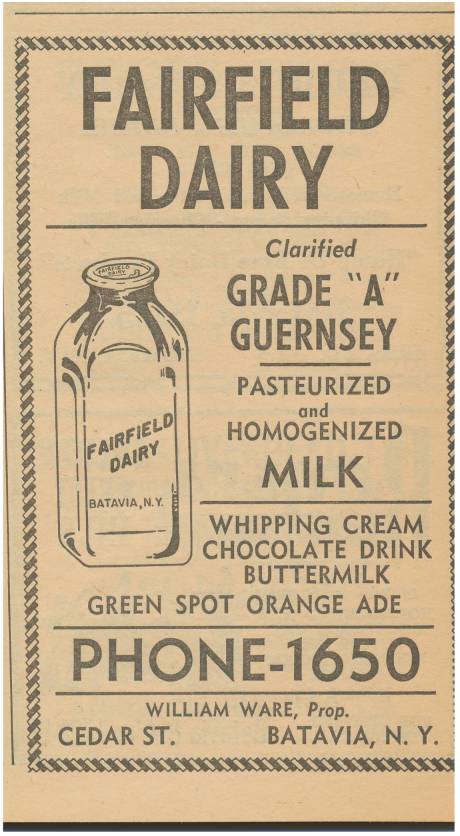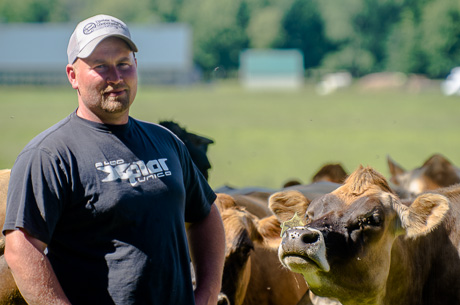There was only one thing to say about the fantastic weather, record numbers, dependable help and community support at this year’s Genesee County Fair, volunteer Norm Pimm says.
“It’s pretty wild,” he said to The Batavian Monday afternoon. “When last year just blew away our numbers that we hadn’t done before — for the last 13 years we had double-digit growth — we figured that no way we were going to top that. After the first Saturday and Sunday, we were already ahead of the pace.”
The fair has risen from attendance of 13,000 a dozen years ago to this year’s intake of 75,000. That’s a 15 percent increase from 2021, which was touted as a record-breaking year for the Agricultural Society’s yearly event.
Pimm believes that, at least in part, people were really anxious to get out and do something after the pandemic lockdown. Plus, the event itself has added new attractions, a midway vendor, more 4-H participants and farm animals, and the volunteer group has invested money into water, electrical and other amenities to continuously improve the grounds, he said. Its reputation has spread beyond Genesee into neighboring counties, often due to word-of-mouth praise, he said.
“I truly believe we’ve had a great county fair; it’s sort of in the back yard of Western New York,” he said. “People say ‘this is the fair I grew up on.’”
There was an impressive 1,100 animals at the fair, albeit in shifts, since they all couldn’t fit into the barns all at once, he said. The meat auction drew 60 new bidders from last year, which raised more than $320,000, and “smashed” the current total. Most of the proceeds went to each youth participant, with a “very small” percentage to help cover Cornell Cooperative Extension’s costs, he said.
“This is huge for the kids, because many of them use the money to purchase their following year’s project,” he said.
About 150 Genesee County 4-H youths participated, with 88 in the auction, and another 100 from throughout New York State in the open livestock shows, he said. Come September, 20 of those youths will go on to participate in events at the State Fair in Syracuse.
Arcade resident Thomas Keele’s steer brought in a whopping $32,000, thanks to a community that agreed to jack up the bids to help his family out after his father was tragically killed in an automobile accident. Pimm knew the boy’s father, and also knew that people had loosely set a goal to raise $10,000 before the bids just kept going and going, he said.
“People just stood up for him,” Pimm said.
In addition to the animals, there was also a baked goods auction that helped the grand total, he said.
No slacker at the grandstand, the demolition derby seated 2,500 people, and opened up the infield to accommodate the overflow.
“So that we didn’t have to turn away people,” he said. “They were excited to see it.”
He credited Bruce Scofield of Stafford for overseeing the derby and securing a 25 percent increase in attendance from last year. Even the amount of cars broke a record, with 60 entered for the smash ‘em up event.
There were problems, Pimm said, such as running out of food at least three or four times at the Chuckwagon, and other vendors reporting that they sold out of products a few times as well. That was “a great problem to have,” he said.
A mini car race was supported by area businesses that sponsored each car, which helped to cover costs and made it free for kids to do. Pig races, a dog comedy act, “fantastic” bands and Hammerl Amusements were all new or fairly new additions that kept bringing the crowds in, he said.
As for the work involved, Pimm laughed as he shared his daughter’s reaction while riding in her dad’s car with him. He kept making calls regarding next year’s fair festivities.
“She said, ‘it never stops, does it?” Pimm said. “For us to continue to grow, we have to add new stuff, and we’re tweaking some things. If it wasn’t for the businesses … and the volunteers, there’s no way we could do this.”
Top photo by Kristin Smith
Photo by Kristin Smith
Photo by Kristin Smith
Photo by Kristin Smith
Photo by Kristin Smith
Photo by Debra Reilly
Photo by Debra Reilly
Photo by Laura Luft


